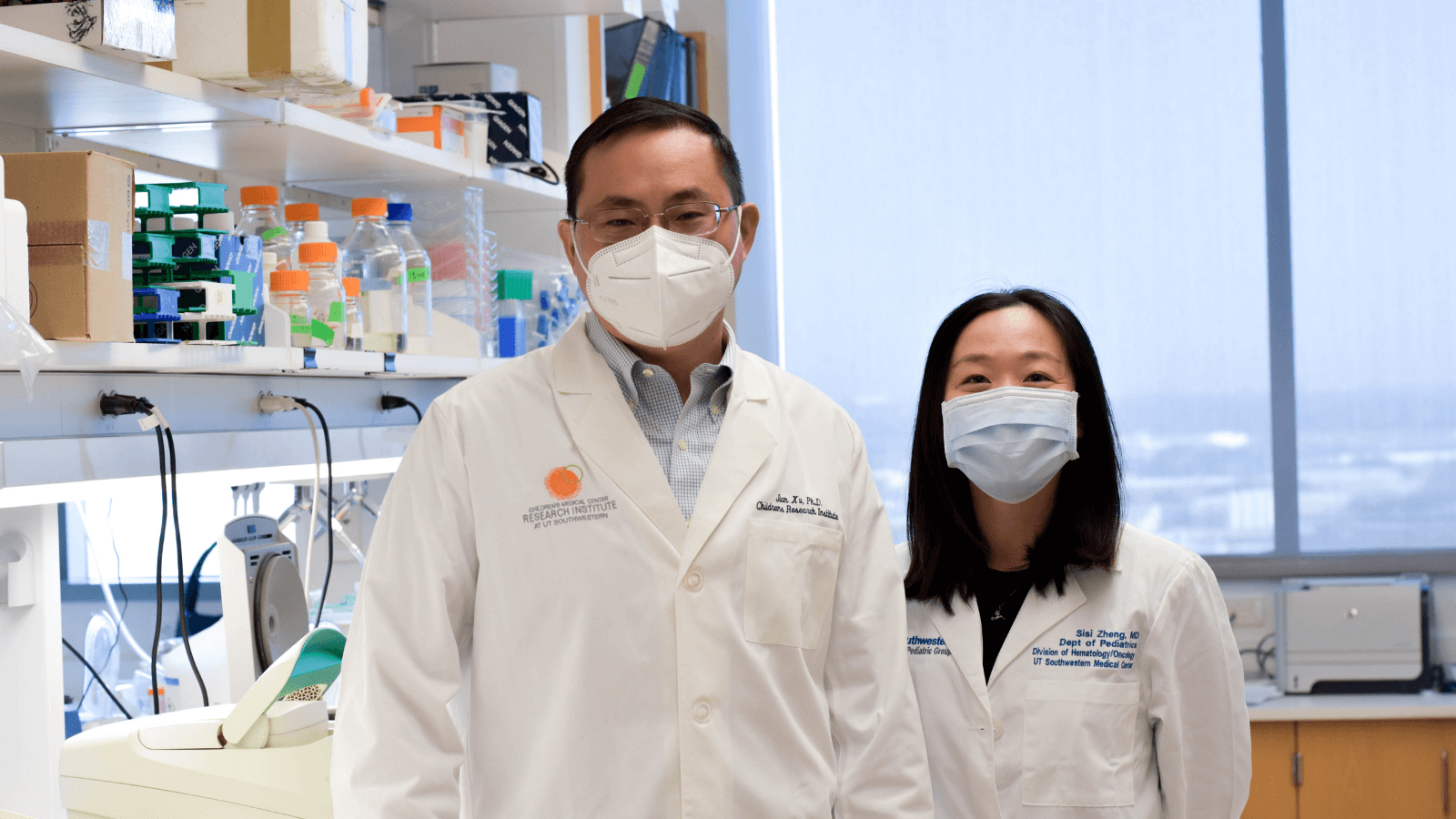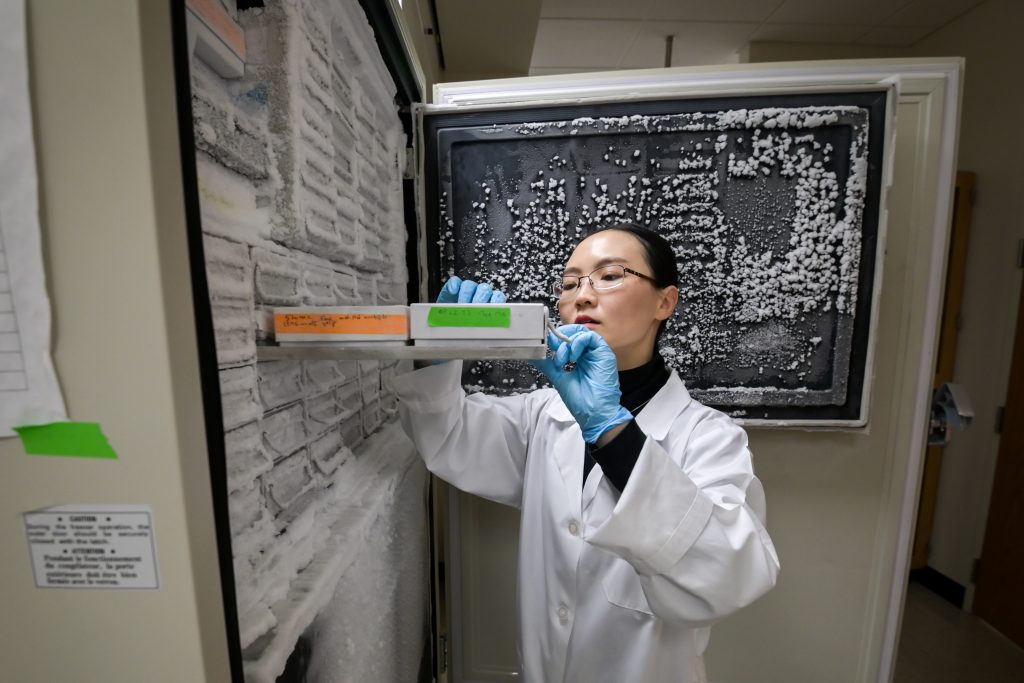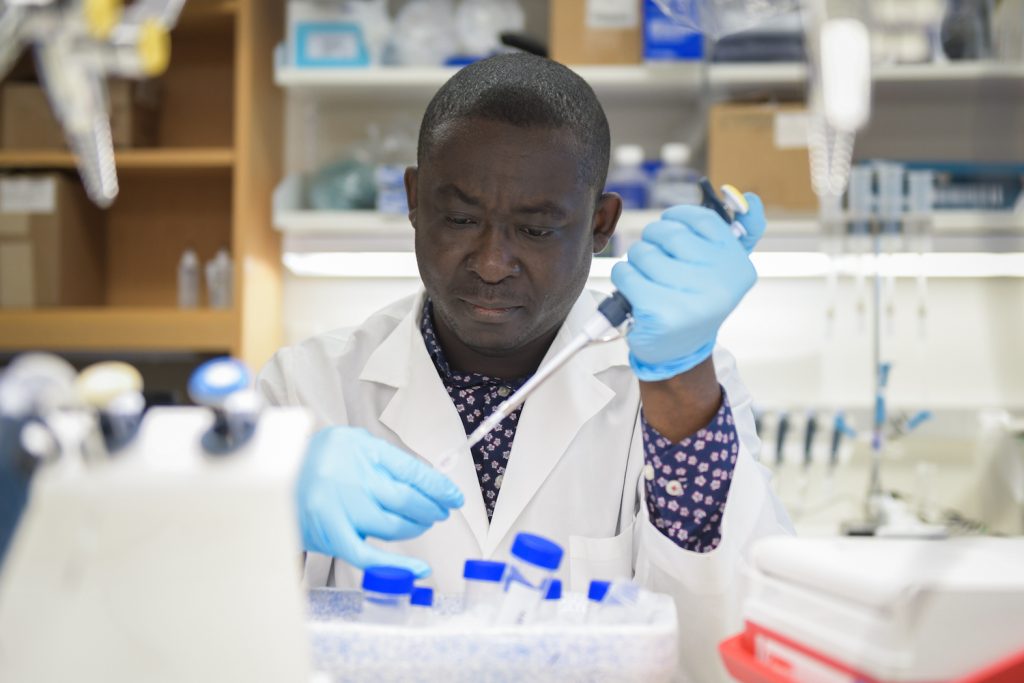Sisi Zheng, M.D., wants to understand what drives the evolution of one of the most common and aggressive pediatric blood cancers – acute myeloid leukemia (AML) — to develop better treatments for children diagnosed with the disease.
Dr. Zheng, an Instructor of Pediatrics in the Division of Pediatric Hematology/Oncology at UT Southwestern, has been awarded a Hyundai Hope on Wheels Young Investigator Grant to support her research toward that goal in the Xu lab at the Children’s Medical Center Research Institute at UT Southwestern (CRI). These highly-competitive grants are aimed at expanding the knowledge base of pediatric cancers and improving the standards of care.
Acute myeloid leukemia (AML) is the second most common pediatric leukemia, and despite intensive chemotherapy regimens and the possibility of hematopoietic stem cell transplants, finding a cure is still a challenge, with survival rates remaining at 65-70%.
Dr. Zheng’s research will explore an early-stage process that can progress to AML: clonal hematopoiesis, in which blood-forming stem cells gain mutations that allow them to outcompete normal blood-forming stem cells for growth and expansion.
Understanding the mechanisms that drive the origins of AML will allow researchers to develop better biomarkers and treatment strategies for children with leukemia.
“Research is the way to push the envelope to make cures more accessible to more patients. It’s particularly gratifying if I can do something at the bench that can directly be translated into something that can improve the quality of life for patients as well,” Dr. Zheng said. “I am very honored to receive this grant in support of my project to broaden our understanding of how the bone marrow harnesses inflammation and immunity to drive the development of myeloid leukemias.”
Inflammation is increasingly recognized for its role in promoting the early evolution of myeloid leukemia. Researchers at the CRI are currently investigating a new cancer pathway that links inflammation to a long-ignored DNA element called retrotransposons.
Retrotransposons — also known as “jumping genes” — move from one location in the genome to another. In the process of “jumping,” retrotransposons elicit inflammatory responses from cells in the bone marrow.
CRI researchers are studying how this retrotransposon-mediated inflammation can directly benefit the outgrowth of the blood-forming stem cells that ultimately give rise to AML.
“Understanding the driving forces of cancer evolution is critical for developing more effective therapies. Sisi is taking a new angle to look at this problem of the driving forces behind inflammation in our bone marrow. It’s a project that could have huge implications in terms of the scientific and translational impact,” said Dr. Jian Xu, an associate professor at CRI and Sisi’s mentor. “I’m very hopeful that Sisi will make great discoveries that will help us understand how leukemia evolves and how we might be able to intervene.”




